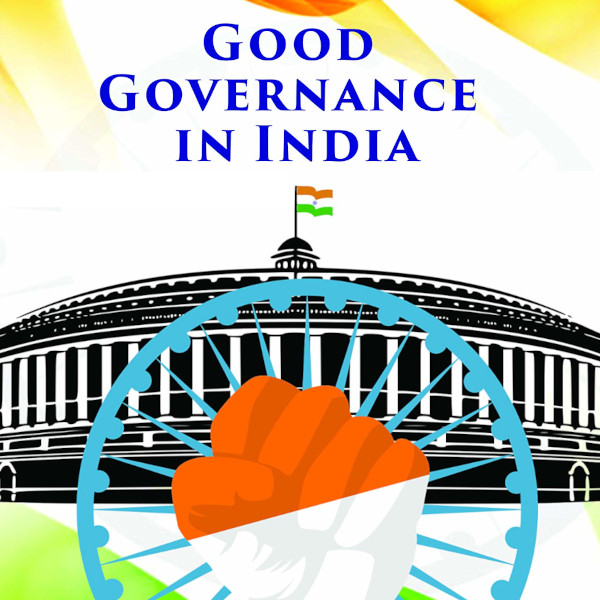Inder Kumar Gujral (I. K. Gujral)
| Full Name | Inder Kumar Gujral |
| Date of Birth | December 4, 1919 |
| Place of Birth | Preet Nagar, Punjab (British India) |
| Date of Death | November 30, 2012 |
| Place of Death | New Delhi, India |
| Spouse | Sheila Gujral |
| Children | Two children: One son and one daughter |

Introduction
Inder Kumar Gujral, popularly known as I. K. Gujral, was the 12th Prime Minister of India, serving from 1997 to 1998. He was a distinguished Indian politician and diplomat who played a significant role in the country’s political landscape for several decades. Known for his foreign policy expertise, particularly the ‘Gujral Doctrine,’ he focused on strengthening India’s relations with its neighbors and other global powers.
Early Life and Education:
Inder Kumar Gujral was born on December 4, 1919, in Preet Nagar, which was then part of undivided Punjab, British India. His family belonged to a relatively modest background, and he was exposed to political movements from an early age due to his family’s involvement in the Indian independence struggle. Growing up during a period of national upheaval, he developed an interest in the political and diplomatic landscape of India.
Gujral completed his early schooling in his hometown and then attended Government College in Lahore. Later, he pursued higher education at Aligarh Muslim University, where he earned a degree in political science. His academic interests in politics and history paved the way for his eventual political career.
Political Career:
I. K. Gujral’s entry into politics was through the Indian National Congress (INC), where he became involved in the post-independence rebuilding efforts of India. Gujral began his political career in the 1950s by working with the Congress Party and serving in various political and administrative roles.
Early Government Service:
- Gujral’s diplomatic career began when he was appointed India’s Ambassador to the Soviet Union in 1976. His tenure in Moscow exposed him to global politics and strengthened his understanding of international relations.
- He was appointed as India’s Minister of External Affairs in 1989, and his tenure was marked by a focus on improving relations with India’s neighbors and key global players.
Prime Minister of India (1997-1998):
I. K. Gujral became Prime Minister of India on April 21, 1997, after the then-Prime Minister H. D. Deve Gowda resigned due to political pressures. Gujral’s rise to the highest office of the land was unexpected, as his tenure had been primarily in foreign affairs and diplomacy.
During his tenure, Gujral worked towards building better relationships with India’s neighboring countries. His approach was largely shaped by his foreign policy, known as the Gujral Doctrine, which emphasized the following principles:
- Non-interference in the internal affairs of India’s neighbors.
- Promoting regional cooperation within South Asia, fostering stability and peace.
- Strengthening diplomatic ties with smaller neighbors like Nepal, Sri Lanka, Bangladesh, and Pakistan.
His administration was marked by its effort to avoid conflicts and promote diplomacy over military action, which was seen as progressive for its time. One of the most notable aspects of his leadership was the emphasis on creating a non-confrontational foreign policy, especially in relation to India’s neighbors.
Although his tenure as Prime Minister lasted only about one year and seven months, his impact on India’s foreign policy and diplomacy is widely regarded as profound. The Gujral Doctrine continues to influence Indian foreign policy to this day.
Major Works and Contributions:
Gujral Doctrine: The most notable contribution of I. K. Gujral to Indian diplomacy is the Gujral Doctrine, which shaped India’s foreign relations in the late 20th century. Some of the key aspects of the doctrine included:
- Non-interference: India would not interfere in the internal matters of its neighbors, even if their policies were contrary to India’s interests.
- Commitment to Peace: Gujral emphasized India’s commitment to peace, encouraging cooperative and peaceful relations with South Asian countries.
- Regional Cooperation: He pushed for regional economic cooperation, facilitating the creation of mechanisms like SAARC (South Asian Association for Regional Cooperation) to encourage dialogue among South Asian nations.
His focus on diplomatic engagement rather than military confrontation brought a sense of stability to the Indian subcontinent during a turbulent period.
Economic and Social Reforms: While Gujral was more recognized for his foreign policy, his contributions to India’s economic development were also notable. During his tenure, India witnessed:
- A commitment to continuing the liberalization policies initiated earlier by the government, despite the challenging economic climate of the 1990s.
- Focus on fostering international trade and investment to stimulate the Indian economy.
Awards and Achievements:
- Padma Vibhushan: I. K. Gujral was awarded India’s second-highest civilian honor, the Padma Vibhushan, in 2012, posthumously, for his contributions to Indian diplomacy and politics.
- Diplomatic Recognition: He was highly respected globally for his calm and pragmatic approach to international diplomacy, particularly in how India interacted with its neighbors and other major global powers.
- Books and Publications: Gujral authored several books, sharing his insights on politics, diplomacy, and his vision for India’s place in the world. His books also discussed the principles of the Gujral Doctrine and his views on regional cooperation.
Personal Life & Legacy:
I. K. Gujral’s personal life was marked by his deep commitment to family and a sense of humility. He was married to Sheila Gujral, and they had two children. Despite his high-profile career, he maintained a low-key and simple lifestyle, focusing on his work and family.
- Legacy: I. K. Gujral is remembered as one of India’s most principled leaders, particularly for his role in shaping India’s foreign policy. His vision for regional peace, stability, and cooperation continues to be a key reference point for Indian diplomacy.
- His contribution to South Asian cooperation remains influential, particularly the emphasis on dialogue over confrontation with neighboring countries.
Trivia:
- Poet and Author: Apart from his political career, Gujral was a man of intellect and a poet. He wrote several books on Indian politics and his experiences in the diplomatic field.
- Languages: He was fluent in multiple languages, including Hindi, English, and Punjabi, which helped him in his diplomatic roles.
- Short Tenure as PM: His term as Prime Minister was short (April 1997 to March 1998), yet he made lasting impacts on India’s foreign policy, especially in relation to Pakistan, Sri Lanka, and Bangladesh.
- Neutral Foreign Stance: One of his unique qualities as a leader was his neutral stance on global issues. Unlike some of his contemporaries, Gujral maintained that India should not be overly influenced by superpowers like the United States or Russia but instead focus on its regional ties.
I. K. Gujral’s life and work left an indelible mark on Indian politics and diplomacy. His calm, thoughtful leadership, particularly during a time of economic and geopolitical change, continues to inspire future leaders and diplomats.
Key Terms:
- diplomatic legacy ,
- Economic Reforms ,
- foreign policy ,
- Gujral Doctrine ,
- I. K. Gujral ,
- India’s neighbors ,
- Indian Diplomacy ,
- Indian History ,
- Indian National Congress ,
- Indian Politics ,
- International Relations ,
- Padma Vibhushan ,
- Political Leader ,
- Prime Minister of India ,
- regional cooperation ,
- South Asia
Disclaimer: The information provided here has been compiled from various sources to the best of our knowledge. While every effort has been made to ensure the accuracy of the details, there may be occasional errors or omissions. If you find any discrepancies or incorrect information, kindly inform us so we can make the necessary corrections. Thank you for your understanding and cooperation.





